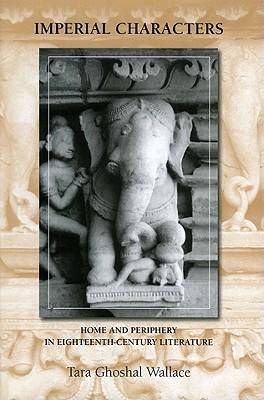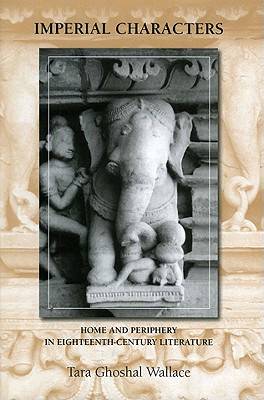
- Afhalen na 1 uur in een winkel met voorraad
- Gratis thuislevering in België vanaf € 30
- Ruim aanbod met 7 miljoen producten
- Afhalen na 1 uur in een winkel met voorraad
- Gratis thuislevering in België vanaf € 30
- Ruim aanbod met 7 miljoen producten
Zoeken
€ 103,45
+ 206 punten
Omschrijving
During the long eighteenth century, Britain won and lost an empire in North America while consolidating its hegemony on the Indian subcontinent. The idea of imperial Britain became an essential piece of national self-definition, so that to be British was to be a citizen of an imperial power. The British literary imagination inevitably participated in the formulation and interrogation of this new national character, examining in fiction empire's effects on the world at home. Imperial Characters traces a range of literary articulations of how British national character is formed, changed, and distorted by the imperial project. Tara Wallace argues that each text she considers, from Aphra Behn's early description of seventeenth-century colonists in Surinam to Robert Louis Stevenson's historical narrative about eighteenth-century Scotsmen roaming the globe, enacts the opportunities, disruptions, and dangers of imperial adventurism. Through close readings of works by Behn, Pope, Thomson, Defoe, Smollett, Bage, Hamilton, Scott, and Stevenson, contextualized within historical moments, Wallace persuasively shows how literary texts rehearse the risks incurred in the course of imperial expansion, not only to British lives but also to cherished national values.
Specificaties
Betrokkenen
- Auteur(s):
- Uitgeverij:
Inhoud
- Aantal bladzijden:
- 244
- Taal:
- Engels
- Reeks:
Eigenschappen
- Productcode (EAN):
- 9781611483352
- Verschijningsdatum:
- 1/05/2010
- Uitvoering:
- Hardcover
- Formaat:
- Genaaid
- Afmetingen:
- 163 mm x 244 mm
- Gewicht:
- 496 g

Alleen bij Standaard Boekhandel
+ 206 punten op je klantenkaart van Standaard Boekhandel
Beoordelingen
We publiceren alleen reviews die voldoen aan de voorwaarden voor reviews. Bekijk onze voorwaarden voor reviews.











